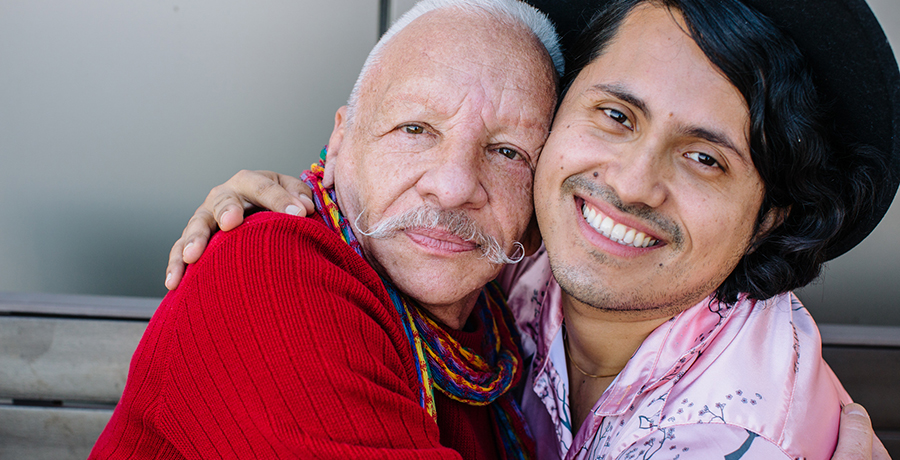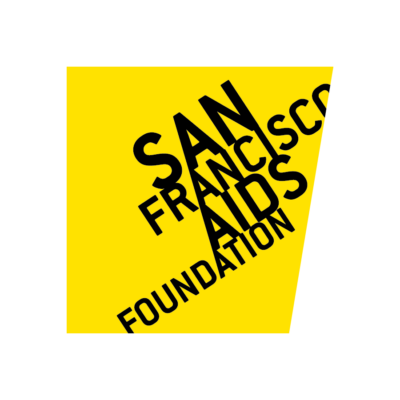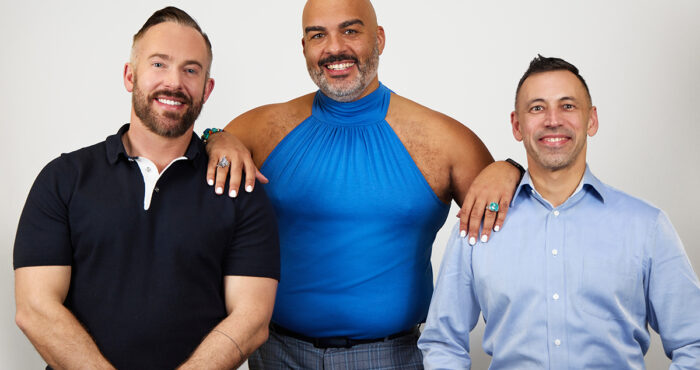Ensuring safety, stability, and connection to healthcare for recent immigrants from Latin America

On an otherwise uneventful day in September, three recent migrants from Latin America stopped by our main office on Market Street asking to be connected to a Spanish-speaking case manager. This is a frequent occurrence at San Francisco AIDS Foundation–referred by other Spanish-speaking immigrants who have previously found ways to navigate the labyrinth of services and support offered in San Francisco, these new clients knew they would find comprehensive support at our organization as they tried to establish a new life in the Bay.
Maricruz Moreno, a case manager with our Latinx Health Program, quickly stepped in to help. All three of the clients needed assistance finding shelter and a more permanent place to live, plus basic healthcare services.
“I help a lot of immigrants who need everything when they arrive from their country,” said Moreno. “These are people escaping dangerous situations in their home countries–people having to flee because of violence, organized crime, threats made to themselves or their families. They may come here with nothing more than a backpack, and need help finding a place to live, a job, support groups, healthcare. That’s the support that we provide.”
The Latinx Health team has responded to a notable increase in the number of immigrants arriving from Latin America in recent months, due to changing Covid-19 immigration policies at the US-Mexico border.
The team is committed to fulfilling the HIV, sexual health, substance use, and overdose prevention needs of new arrivals, but oftentimes find that basic needs such as housing and safety take priority.
Jorge Zepeda, director of Latinx Health, shared the network of support provided by his team of case managers and counselors. Establishing trust, remaining in close contact, and proactive and ongoing outreach are critical.
“We first work to respond to immediate needs, in order to help stabilize the individual,” he said. “That oftentimes means helping people find a place to stay and making sure they’re in a safe situation. Once we have that taken care of, we work with the individual to address their other needs. Where can they find free or affordable dental care? Are they looking for employment? Do they need to see a doctor or get HIV or hepatitis C care? Some of these services we provide at SFAF, and our case managers also maintain a comprehensive network of outside providers to refer people to.”
Oftentimes, case managers personally accompany clients to appointments and services.
“A lot of the people we serve don’t have any family or people who can support them here,” said Moreno. “As an immigrant, we come here to find a better life. But when you find yourself completely separated from everyone you know and everything familiar, it can be really hard. And on top of that, many people–even if they have documents–don’t believe that they have rights in this country. They may be scared of going out to find and ask for services. We’re here to let people know that they do have rights here, they can access services, there are people who care about them and want to make sure they’re taken care of.”
In addition to seeing clients who find their way to our office, the team does regular outreach in the community–meeting people at health and cultural fairs, promoting services at a weekly weekend flea market in the Mission, and going door-to-door at local single resident occupancy (SRO) hotels.
This ongoing outreach is a critical way the team responds to the nature of the community we serve, explained Zepeda.
“There are always new immigrants coming to San Francisco. If we don’t go out to meet them where they are, they may stay isolated. They may be hesitant to connect with services, fearful of deportation or mistreatment. That oftentimes means they don’t connect with services until there’s an emergency. We’re here to make sure people know what support is available, and to personally bring them in to find the support that they need.”
The team includes a community outreach specialist, Adrian Vargas, who engages in Covid-19 response work and also helps to bring safer supplies and information out to the community, and a volunteer, Nohemi Romero who stays in touch with peer educator “promotores” networks across California and the U.S. on WhatsApp and in Facebook groups. Rosa Mercado serves as the team’s outreach coordinator, calling clients weekly to check in on wellness goals and make sure urgent issues are addressed.
A large part of the team’s focus is on connecting clients to overdose prevention and substance use treatment services. Eduardo Siqueiros serves as a bridge between SFAF’s harm reduction and substance health counseling services, ensuring that Spanish-speaking clients find support in managing or changing their substance use.
“We understand the needs of immigrant communities. That’s key. It’s not just the language. It’s not just the culture. It’s that we understand the context of being an immigrant in the U.S., and the challenges you are forced to face,” said Zepeda.










